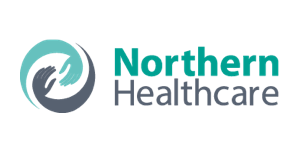Frequently Asked Questions
What are nursing audit tools?
Nursing audit tools are systematic instruments used to assess, monitor, and improve the quality of care within a nursing home. They help evaluate compliance with healthcare standards, policies, and procedures, ensuring that the care provided meets regulatory and organizational expectations. Nursing audit tools facilitate data collection related to patient care, medication management, and safety protocols. They often include checklists, forms, and templates to streamline the audit process. By identifying gaps and areas of improvement, nursing home management software ensures better patient outcomes, enhances operational efficiency, and maintains compliance with industry standards.
What are the key features and benefits of nursing home management software?
Nursing home management software should:
- Allow staff to access vital information even without an internet connection via any device.
- Offer templates for audits, compliance checks, and care processes.
- Enable quick creation of detailed reports, saving time and improving data accuracy.
- Automate routine tasks, reducing administrative burdens.
- Facilitate action tracking to address issues identified during audits.
- Provide up-to-date insights into operations, patient care activities, and compliance.
How to choose the right nursing home management software?
Choosing the appropriate software for managing a nursing home involves a few key steps:
- Understand the specific needs of your facility, including compliance with local and federal regulations.
- Evaluate that the software meets your requirements without exceeding your budget.
- Choose a nursing audit tool that is easy to use for staff.
- Opt for software with reliable customer support.
- Prioritize nursing home management software with strong data encryption and security measures to protect sensitive patient information.
- Leverage free trials or demos to test the different features and determine its fit for your nursing home before committing
On which platforms is the GoAudits nursing home management software available?
GoAudits nursing home management software is available on the web, iOS, and Android platforms.
What is an audit in a nursing home?
An audit in a nursing home is a thorough evaluation of care practices, documentation, and compliance with regulatory standards. It involves reviewing patient records, care plans, and operational processes to ensure that the quality of nursing care aligns with established benchmarks. The goal is to assess the effectiveness of nursing interventions, identify areas for improvement, and ensure that the nursing home complies with legal and ethical standards of patient care.
What are the six stages of a nursing audit?
The nursing audit process involves six key stages:
- Planning: Defining the scope and objectives of the audit, selecting criteria and standards to be reviewed.
- Preparation: Gathering data and creating audit tools such as checklists or templates.
- Implementation: Conducting the audit by reviewing records, interviewing staff, and assessing care processes.
- Analysis and Finding Gaps: Identifying discrepancies between current practices and the desired standards.
- Improvement: Implementing changes to address the identified gaps and enhance care quality.
- Sustaining Improvement: Continuously monitoring and reviewing to ensure that improvements are maintained over time
What are the types of nursing audits?
Nursing audits can be categorized into different types based on their focus and timing:
- Concurrent Audit: Conducted while the patient is still receiving care, focusing on real-time evaluation of care processes and documentation.
- Retrospective Audit: Performed after a patient has been discharged, assessing records and care delivery retrospectively.
- Internal Audit: Performed by the nursing home’s own staff, focusing on internal processes and adherence to facility-specific protocols.
- External Audit: Conducted by external agencies or regulatory bodies to ensure compliance with industry standards and legal requirements


























